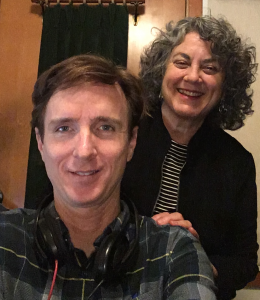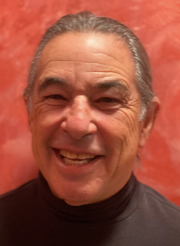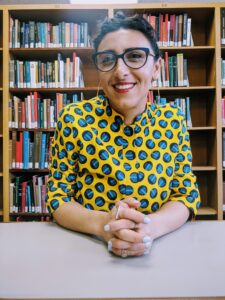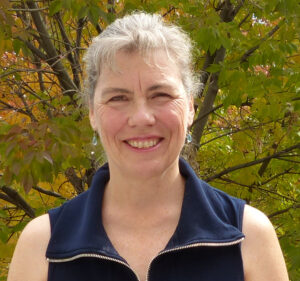by Rona | Apr 2, 2021 | KPFA, Podcasts, Radio Shows
It’s over a year now since we began to adjust to the many challenges of the Covid-19 pandemic. How are you doing? And what questions do you have about staying healthy as things are opening up and more and more people are getting vaccinated? Let’s talk about how to keep your health and well being front and center as we start to enjoy some of the things we’ve missed so dearly.
Tune in to KPFA.org, 94.1FM, 4/5/21 from 2-3PM (PST)
Call us at 1-800-958-9008 with your questions and concerns regarding Covid-19, your general health, and ways to keep your immune system strong.
GUEST

Harry McIlroy, MD, is an integrative physician certified with the Institute for Functional Medicine. Before medical school and completion of residency at Contra Costa Regional Medical Center, he had a background in nutrition and obtained a Master’s degree in acupuncture and Chinese medicine. Dr. Harry strives to provide patients with health tools that empower them to improve their well being. Some of his specialities include Medical Cannabis, Chronic Pain, Digestive Health, Regenerative Medicine, and Insomnia. He serves as a volunteer clinical faculty member for the UCSF Medical School, and mentors and teaches medical residents at the Contra Costa Regional Medical Center, which provides medical care to underserved populations.
If you want to hear the previous show I did 4/2020 with Dr. Harry McIlroy, you can listen here for many good tips on health: https://www.nurserona.com/staying-healthy-during-covid-19/
by Rona | Mar 19, 2021 | KPFA, Podcasts, Thoughts for the Day
In the US, Black and other ethnic minority groups are hit the hardest by Covid-19, creating a renewed focus on racism in healthcare. There are so many false beliefs that many doctors and other healthcare providers still work from about Black people, such as their skin being thicker, their blood coagulating differently, and that they feel less pain. When doctors are blind to their racist beliefs and attitudes it can lead to less effective treatments, more pain, humiliation, and even death. It’s time that doctors, medical students, and other health care professionals take anti-racist study seriously and get support to see bias in themselves and in others.
On 1/18/21 we had a conversation on About Health (94.1FM KPFA.org) to discuss racism in medical care. We heard about personal experiences of racism and some of the history that has added to the mistrust of doctors based on racist practices. You can hear that show here: https://www.nurserona.com/racism-in-medical-care/ It seemed important to me to do a follow up show to continue the conversation.
What are ways to uproot racism in medicine?
Listen now to About Health on KPFA.org—94.1FM (3/22/21)
 Dr. Jeff Ritterman is a retired cardiologist from Kaiser Richmond where he worked for 29 years. He was also a Professor and Clinical Coordinator for the Physician Assistant Program at Touro University and worked for three years doing Adult Primary Care at Lifelong Medical in San Pablo. He is on the Board of Directors of San Francisco Physicians for Social Responsibility and served on the Richmond City Council when they introduced the first municipal Soda Tax. In the 1980s he helped start the Salvador Medical Relief Fund and the Committee for Health Rights in Central America. He personally delivered medical supplies to Salvador Refugees in Honduras and Costa Rica. In the 1990s he started the Southern Africa Medical Aid Fund and delivered medical supplies to the African National Congress’s Clinic in Lusaka, Zambia. He has helped start two Racial Equity Book Clubs, one with Kaiser Oakland and the other with San Francisco Physicians for Social Responsibility. He is the author of two recent papers on combating Medical Racism.You can read one of them here: http://www.thepermanentejournal.org/issues/2021/spring/7609-the-ally-book-club-a-tool-for-challenging-racism.html
Dr. Jeff Ritterman is a retired cardiologist from Kaiser Richmond where he worked for 29 years. He was also a Professor and Clinical Coordinator for the Physician Assistant Program at Touro University and worked for three years doing Adult Primary Care at Lifelong Medical in San Pablo. He is on the Board of Directors of San Francisco Physicians for Social Responsibility and served on the Richmond City Council when they introduced the first municipal Soda Tax. In the 1980s he helped start the Salvador Medical Relief Fund and the Committee for Health Rights in Central America. He personally delivered medical supplies to Salvador Refugees in Honduras and Costa Rica. In the 1990s he started the Southern Africa Medical Aid Fund and delivered medical supplies to the African National Congress’s Clinic in Lusaka, Zambia. He has helped start two Racial Equity Book Clubs, one with Kaiser Oakland and the other with San Francisco Physicians for Social Responsibility. He is the author of two recent papers on combating Medical Racism.You can read one of them here: http://www.thepermanentejournal.org/issues/2021/spring/7609-the-ally-book-club-a-tool-for-challenging-racism.html

Dr. Nadia Gaber is a postdoctoral fellow in the Program on Reproductive Health and the Environment, studying the influence of the chemical industry on the science and regulation of toxic chemicals. She received her PhD in medical anthropology and is obtaining her MD at UCSF with support from the NIH Medical Scientist Training Program. Her research in Detroit and Flint looked at the politics of urban health and safety in the U.S. through the lens of water. She is continuing to develop that research in a book project called Life After Water that blends ethnography, grassroots epidemiology and critical race theory. She is a member of the new UCSF REPAIR Project, a three-year initiative to combat anti-Black racism in the health sciences and has organized off-campus with groups like Critical Resistance and the Arab Resource and Organizing Center.
Some References From Dr. Ritterman
1. Washington HA. Medical apartheid. New York, NY: Anchor Books; 2008.
2. Owens DC. Medical bondage. Athens, GA: University of Georgia Press; 2017.
3. Diangelo R. White fragility. Boston, MA: Beacon Press; 2018.
4. Kendi IX. How to be an antiracist. New York, NY: Random House; 2019.
5. Metzl JM. Dying of whiteness. New York, NY: Basic Books; 2019.
6. Hoffman KM, Trawalter S, Axt JR, Oliver MN. Racial bias in pain assessment and treatment recommendations, and false beliefs about biological differences between blacks and whites. Proc Natl Acad Sci USA 2016 April;113:4296-301. DOI: https://doi.org/10.1073/pnas 15160471131073 Accessed August 20, 2020.
by Rona | Feb 10, 2021 | KPFA, Podcasts, Radio Shows
Listen now to the 2/15/21 show on KPFA.org (94.1FM)
50 million people are living with Alzheimer’s and other dementias worldwide, and there are nearly 10 million new cases every year. Here in the U.S. African Americans are twice as likely to develop Alzheimer’s and other dementias, but only half as likely to get a proper diagnosis, treatment or access to support resources.Join us to talk about the diagnosis and care of people with dementia and how culture, race, and health disparities are important parts of the discussion.
Guest:

Karla Fields is a Community Outreach Specialist at the Alzheimer’s Association. Her primary focus is outreach to the African American community. She is a former educator and has over 30 years experience in education, public relations, fundraising and civic engagement. In her free time Karla enjoys spending time with her husband and three children. https://www.alz.org/norcal
by Rona | Jan 29, 2021 | KPFA, Podcasts, Radio Shows
Listen now to the show on February 1, 2021 on @KPFA.org— 94.1FM, at 2PM.
My guest, Veronique Mead, reports: Dr. Vincent Felitti, co-investigator of the original and most well known ACEs (adverse childhood experiences) study spent over 25 years running a weight loss clinic. His team found that trauma is a risk factor for type 2 diabetes and also for bigger bodies. “Obesity,” it turns out, is a “biomarker.” Bigger bodies are an indication of stressful events in the past and a physiology that is no longer regulating in an optimal way for current circumstances.” (Wickrama, 2017; Felitti, 2010).” Veronique Mead says, “There is a profound and deeply shaming stigma assigned to larger bodies or having type 2 diabetes (T2D) in our culture.”
We’ll talk about how to reduce shame and blame and deepen our understanding of the connection between adverse experiences and disease.
 Veronique Mead was an Assistant Professor of Family Medicine and practicing physician at the New Hampshire-Dartmouth Family Practice Residency program when she changed careers and retrained as a Somatic Trauma Therapist. For the past 2 decades she has been integrating the science of adversity into a new model for making sense of chronic illness and has pulled together a database of more than 12,000 references. She also draws from her personal journey of gradual recovery from disabling chronic fatigue syndrome and emphasizes how effects of trauma are not psychological as is still often mistakenly believed. Veronique shares the science on her blog, ChronicIllnessTraumaStudies.com
Veronique Mead was an Assistant Professor of Family Medicine and practicing physician at the New Hampshire-Dartmouth Family Practice Residency program when she changed careers and retrained as a Somatic Trauma Therapist. For the past 2 decades she has been integrating the science of adversity into a new model for making sense of chronic illness and has pulled together a database of more than 12,000 references. She also draws from her personal journey of gradual recovery from disabling chronic fatigue syndrome and emphasizes how effects of trauma are not psychological as is still often mistakenly believed. Veronique shares the science on her blog, ChronicIllnessTraumaStudies.com
by Rona | Dec 19, 2020 | KPFA, Podcasts, Radio Shows
Listen now to the 12/21/20 show on KPFA radio—94.1FM, for current information about vaccines, Covid-19 cases, and what we can do to stay safe and out of the hospital.
More than 17 million people in the U.S. have had confirmed coronavirus infections and more than 310,000 have died of COVID-19. Tens of thousands of new cases are reported daily nationwide, and California has had over 23,000 deaths. There is hope with the rollout of vaccines, but it will be some time before we can be confident of our health and safety.
I was joined by Dr. Christine Doyle. So grateful she took time to answer some of our questions.

Dr. Christine Doyle is a physician trained in anesthesiology and critical care. She practices in the Silicon Valley, and is the Immediate Past President of the California Society of Anesthesiologists (CSA), and a Fellow of the American Society of Anesthesiology. As President of the CSA when the coronavirus pandemic hit, Dr. Doyle was responsible for initial recommendations about protective equipment, and performing surgery, for members of the society. She also provided expert background information for state officials who were developing guidelines and changing protocols for California healthcare systems. She continues to serve as a leading voice in professional medical association activities through political advocacy, engaging with the media, and keeping anesthesiologists informed of key issues facing their specialty.


 Dr. Jeff Ritterman is a retired cardiologist from Kaiser Richmond where he worked for 29 years. He was also a Professor and Clinical Coordinator for the Physician Assistant Program at Touro University and worked for three years doing Adult Primary Care at Lifelong Medical in San Pablo. He is on the Board of Directors of San Francisco Physicians for Social Responsibility and served on the Richmond City Council when they introduced the first municipal Soda Tax. In the 1980s he helped start the Salvador Medical Relief Fund and the Committee for Health Rights in Central America. He personally delivered medical supplies to Salvador Refugees in Honduras and Costa Rica. In the 1990s he started the Southern Africa Medical Aid Fund and delivered medical supplies to the African National Congress’s Clinic in Lusaka, Zambia. He has helped start two Racial Equity Book Clubs, one with Kaiser Oakland and the other with San Francisco Physicians for Social Responsibility. He is the author of two recent papers on combating Medical Racism.You can read one of them here:
Dr. Jeff Ritterman is a retired cardiologist from Kaiser Richmond where he worked for 29 years. He was also a Professor and Clinical Coordinator for the Physician Assistant Program at Touro University and worked for three years doing Adult Primary Care at Lifelong Medical in San Pablo. He is on the Board of Directors of San Francisco Physicians for Social Responsibility and served on the Richmond City Council when they introduced the first municipal Soda Tax. In the 1980s he helped start the Salvador Medical Relief Fund and the Committee for Health Rights in Central America. He personally delivered medical supplies to Salvador Refugees in Honduras and Costa Rica. In the 1990s he started the Southern Africa Medical Aid Fund and delivered medical supplies to the African National Congress’s Clinic in Lusaka, Zambia. He has helped start two Racial Equity Book Clubs, one with Kaiser Oakland and the other with San Francisco Physicians for Social Responsibility. He is the author of two recent papers on combating Medical Racism.You can read one of them here: 



